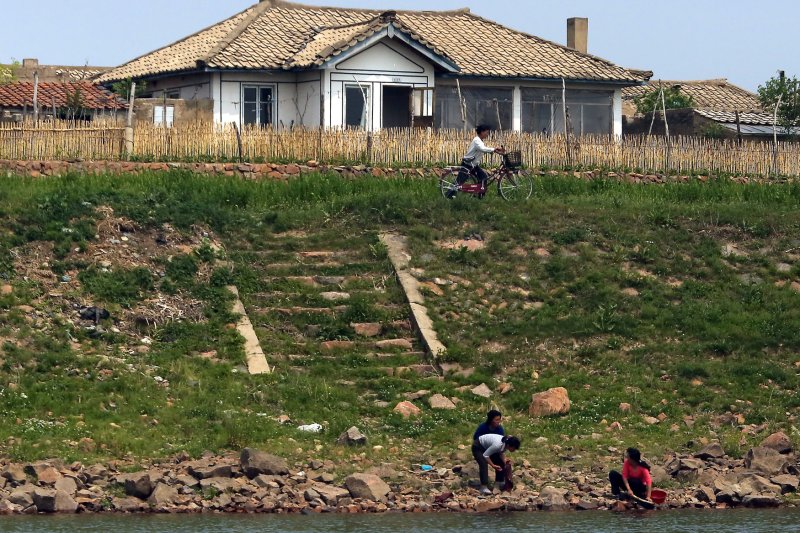North Korean women wash clothing on the banks of the Yalu River near Sinuiju, across the Yalu River from Dandong, China's largest border city with North Korea. As more North Korean defectors resettle in the South, the rate of money transfers to their relatives back home has been steadily rising. File Photo by Stephen Shaver |
License Photo
SEOUL, March 2 (UPI) -- More North Koreans are resettling in the South, and they're not just helping themselves – they're helping family members back home.
A sample survey of 400 defectors conducted by the Database Center for North Korean Human Rights and NK Social Research in South Korea showed that more than half, or 64 percent, of respondents said they're sending money to relatives back home, Yonhap reported.
More than 26,000 defectors have resettled in the South, according to the most recent Unification Ministry statistics.
That rate of remittance is at an all-time high. In 2012, the annual survey indicated 47.4 percent of defectors surveyed sent money transfers, a number that rose to 50.5 percent in 2013 and 59 percent in 2014.
Nearly all recipients in North Korea were direct family members: 44.4 percent were defectors' siblings, 30.8 percent were parents and 11.5 percent were children who were left behind in the North, according to the survey.
On average, a defector transferred money 1.5 times a year, and each remittance was about $1,700 – a substantial amount of money in North Korea. Per capita income in the country was estimated to be $1,209.70 in 2014, according to the Bank of Korea, but most North Koreans earn a wage far lower than that.
Nearly all, or 96 percent, of money transfers take place through an intermediary in China, and most of those transfers involve ethnic Korean-Chinese.
The survey also asked defectors about their reactions to publicized testimonies and remarks from high-profile defectors. More than 65 percent of respondents said their claims were "exaggerated" and only 32 percent of those surveyed said their stories sounded "true."
Close to 80 percent of respondents also said they had no desire to return to the North, and the remainder said they were interested in returning to their country of origin.
Defectors have been known to face adjustment difficulties in the South, but Seoul has worked to increase employment opportunities for the new arrivals.
On Wednesday, during an exhibit on defectors, Unification Minister said they should commit themselves to adjusting in a "competitive society," and that their efforts would contribute to the "dream of unification."















